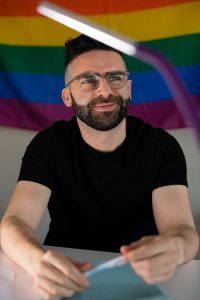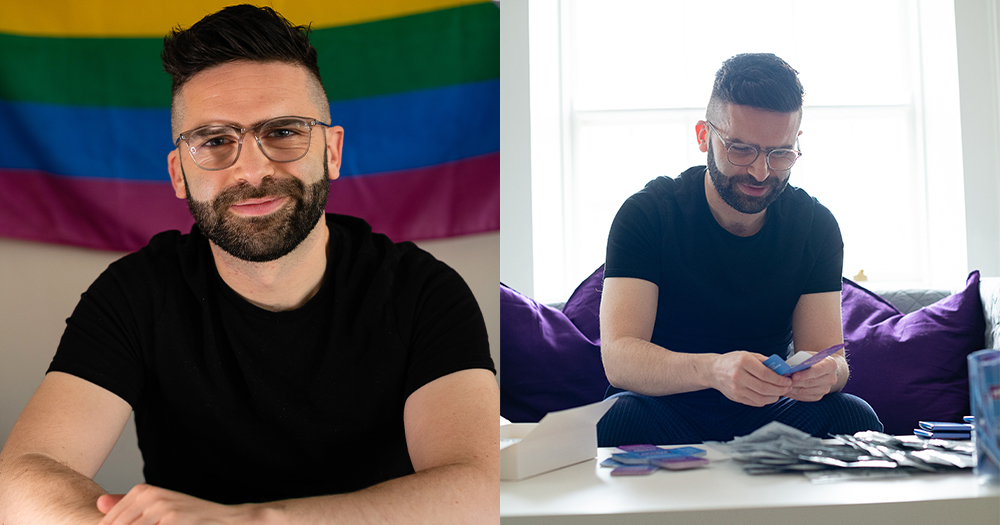As part of a new series, we highlight the people behind the MPOWER programme at HIV Ireland. Mark Doyle shares the necessary need to fight stigma and ensure the community gets the sexual health services it deserves.
From community based testing to peer-led support, the MPOWER team provide an essential service to gay and bisexual men and other MSM in Ireland, empowering them with sex-positive and judgement-free based services and resources.
Acting as an accessible presence for service users, MPOWER Outreach Worker Mark Doyle answers any questions they may have about sex and sexual health – primarily through the multitude of gay dating apps. As Grindr is by far the most popular app of its kind used in Ireland, the majority of his interactions are contained there. He mainly focuses on talking to guys who live in suburban or rural areas, especially about the new PrEP scheme.
“I was surprised by how many people are not aware of PrEP and its availability and that it can be obtained for free,” he said. “We also remind people of the U=U message (undetectable equals untransmittable) as we continue to fight the stigma that people living with HIV experience.” Another stigma which Mark hopes to help people overcome is being tested during a pandemic. Needless to say government guidelines have changed throughout the months, but in general they’ve recommended avoiding close contact. As such, those who do engage in sexual practices during the pandemic with people outside of their household may fear judgment.
“There is a danger that people who have sex and perhaps acquire an STI or start to experience symptoms will feel they might be stigmatised or judged,” Mark explained. “That feeling can be internalised and might end up in being reluctant to seek testing or treatment.”
“It’s a challenge for us all to balance restrictions and our needs to be intimate – our job is to make accessing services easy and to dismantle stigma and judgement.”

Mark discussed the importance of community spaces for breaking down these barriers – and now that many of them are gone (if only temporarily), it’s difficult not to feel like they may have been taken for granted. Although, as Mark pointed out, not everyone has the same experience, and members of the wider LGBTQ+ community may have no relationship with places such as The George, or Outhouse, or indeed any other queer space.
“Their circumstances and life experience have meant that they have had little contact with the community and have missed what some of us might see as being rites of passage,” Mark elaborated. “None of us got an adequate or sex-positive sex education in schools, rather it is through our peers that we have learned about sex and testing.
“So without that connection to community, there is a knowledge gap that can lead to fear or anxiety and often a view of sex and sexuality that is limiting and inhibiting rather than empowering and freeing.” It’s for this reason that Mark feels his work with more rural and suburban guys has been so critical.
“Some of my most rewarding experiences in this job have been helping these men by talking to them in an accessible way about sex and their sexual health which I believe will also have positive mental health outcomes.”
For further information on MPOWER and the services they provide, visit their website here.
© 2020 GCN (Gay Community News). All rights reserved.
Support GCN
GCN is a free, vital resource for Ireland’s LGBTQ+ community since 1988.
GCN is a trading name of National LGBT Federation CLG, a registered charity - Charity Number: 20034580.
GCN relies on the generous support of the community and allies to sustain the crucial work that we do. Producing GCN is costly, and, in an industry which has been hugely impacted by rising costs, we need your support to help sustain and grow this vital resource.
Supporting GCN for as little as €1.99 per month will help us continue our work as Ireland’s free, independent LGBTQ+ media.
